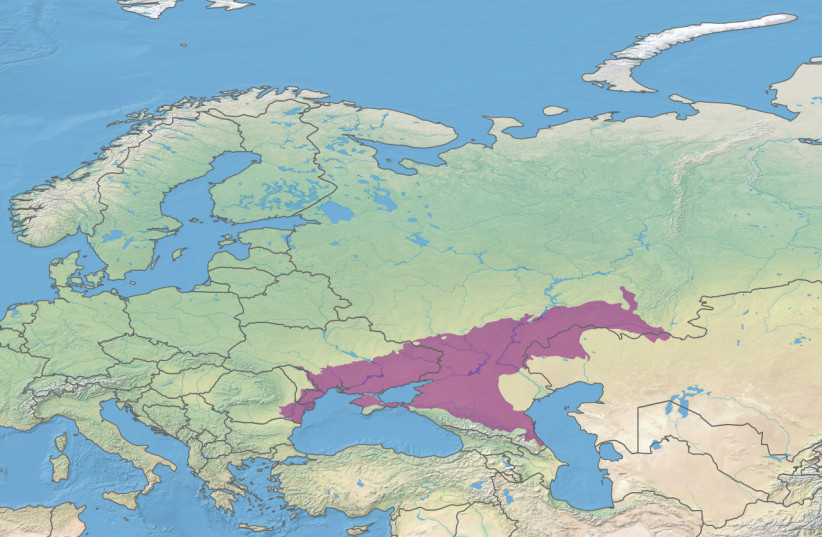Researchers discovered human remains dating back to the 2nd century in Cambridgeshire, UK, with ancestry linked to the Caucasus and Sarmatians but not to local British populations, according to a December report published in the peer-reviewed scientific journal Current Biology.
The researchers first discovered the human remains in a burial near Offord Cluny, an English village approximately 60 miles north of London. The individual, a male, was dubbed Offord Cluny 203645.
The excavations were related to the development of the National Highway A14 in Cambridgeshire.
The report, titled "An individual with Sarmatian-related ancestry in Roman Britain," notes that the Sarmatians, the group to whom Offord Cluny belonged, were nomadic Iranian speakers living from the Pontic-Caspian steppe in the Carpathian mountains.
The Pontic-Caspian steppe covers a massive swath of land ranging from Romania in the west to the Caspian Sea in the south and northwestern Kazakhstan in the east.

Conscripts in the Roman army
After the Romans defeated the Sarmatians in the Marcomannic Wars in 175 CE, Emperor Marcus Aurelius enlisted Sarmatian cavalry into Roman legions and sent 5,500 Sarmatian soldiers to Britain.
The researchers believe it is likely that it was one of these Samartians deployed to Roman Britain who was found in Cambridgeshire.
After having analyzed the genome from the cochlea portion of Offord Cluny’s temporal bone and radiocarbon-dated a tooth to the early-mid Roman period (126–228 CE), researchers believe it is likely that he was one of these Samartians deployed to Roman Britain.
Indeed, the remains displayed unique genetic characteristics not seen in other Roman individuals from Britain but instead shared more similarities with people from Anatolia and the Caucasus.
Furthermore, as indicated by stable isotopes, Offord Cluny had a mobile childhood. The unique life history of this Sarmatian man, as illustrated by his apparent deployment to Britain, indicates he continued to be so throughout his life.
Evidence gathered from his remains suggests Offord Cluny was around 18–25 years old at the time of his death. The scientists further posit that, from the evidence of migration from both genetic and stable isotope analyses, it is plausible that he came to Britain as part of a military movement, likely either a soldier or part of a soldier's family.
